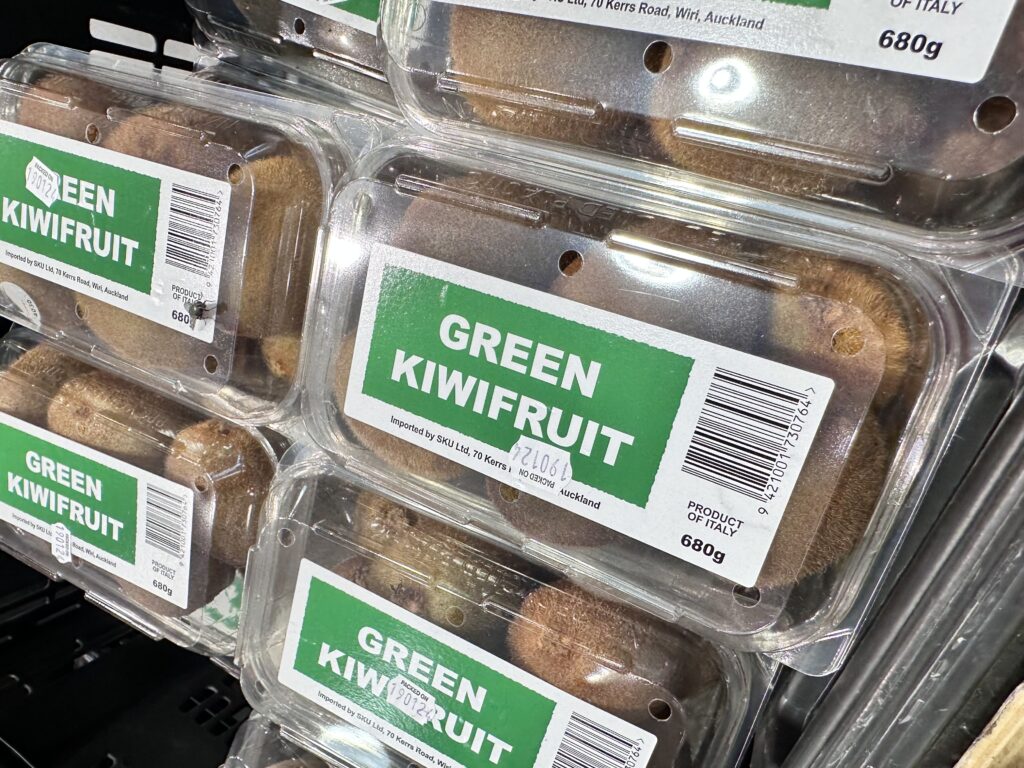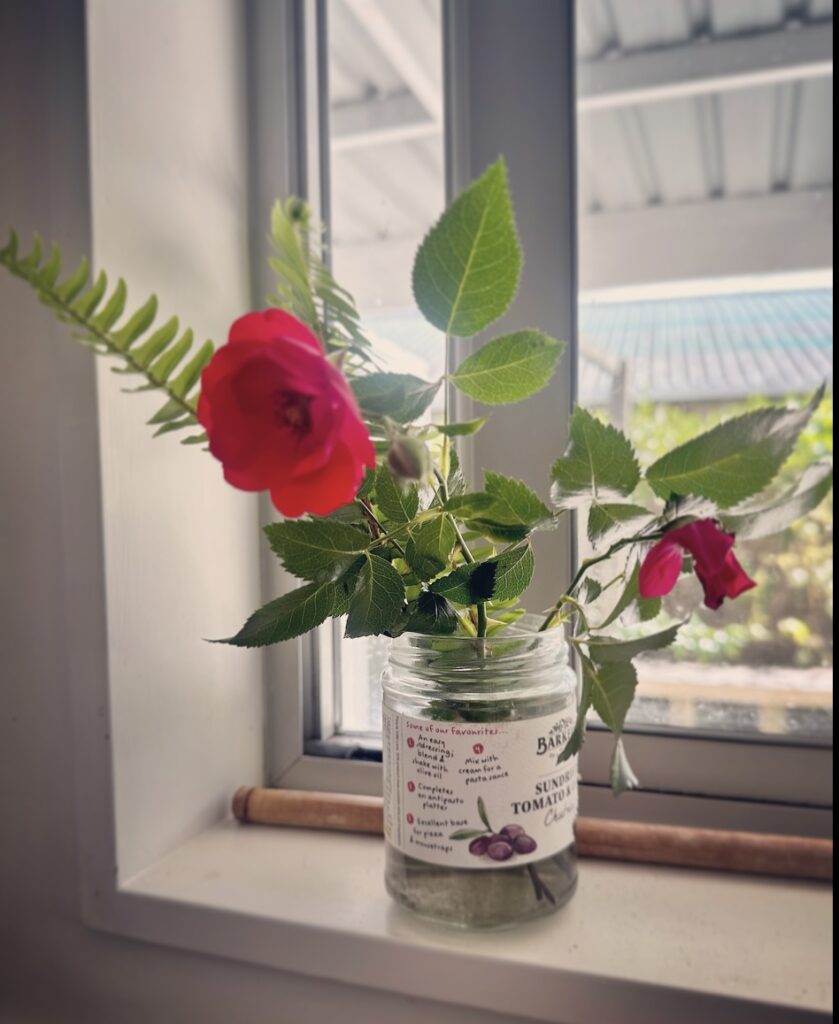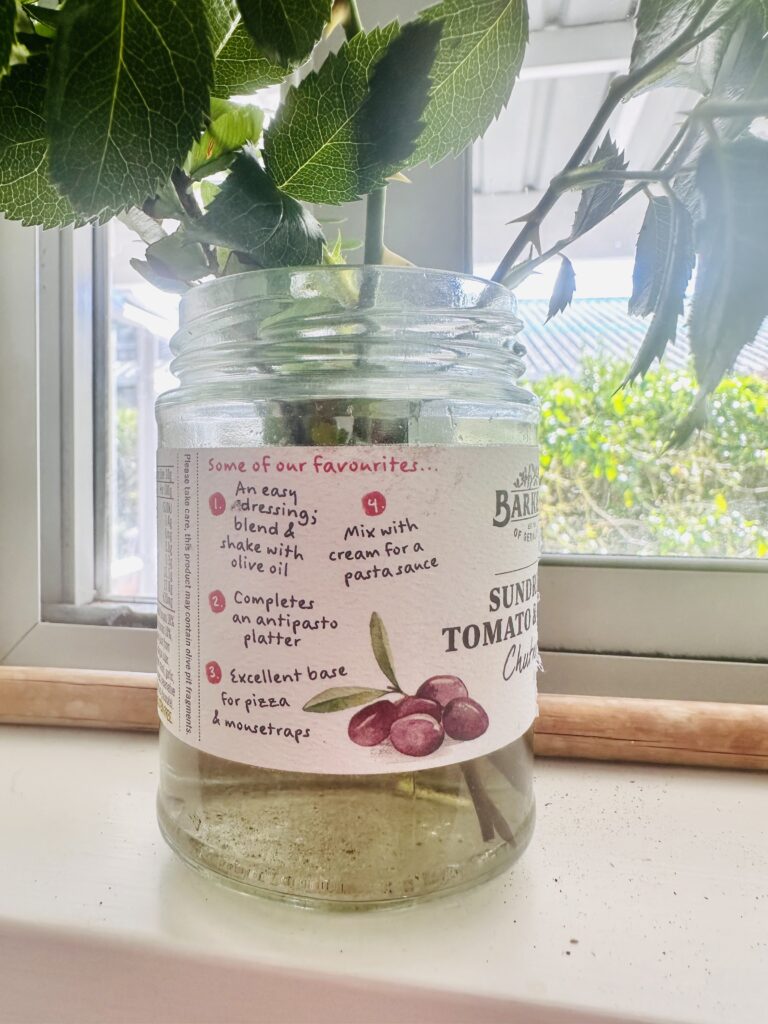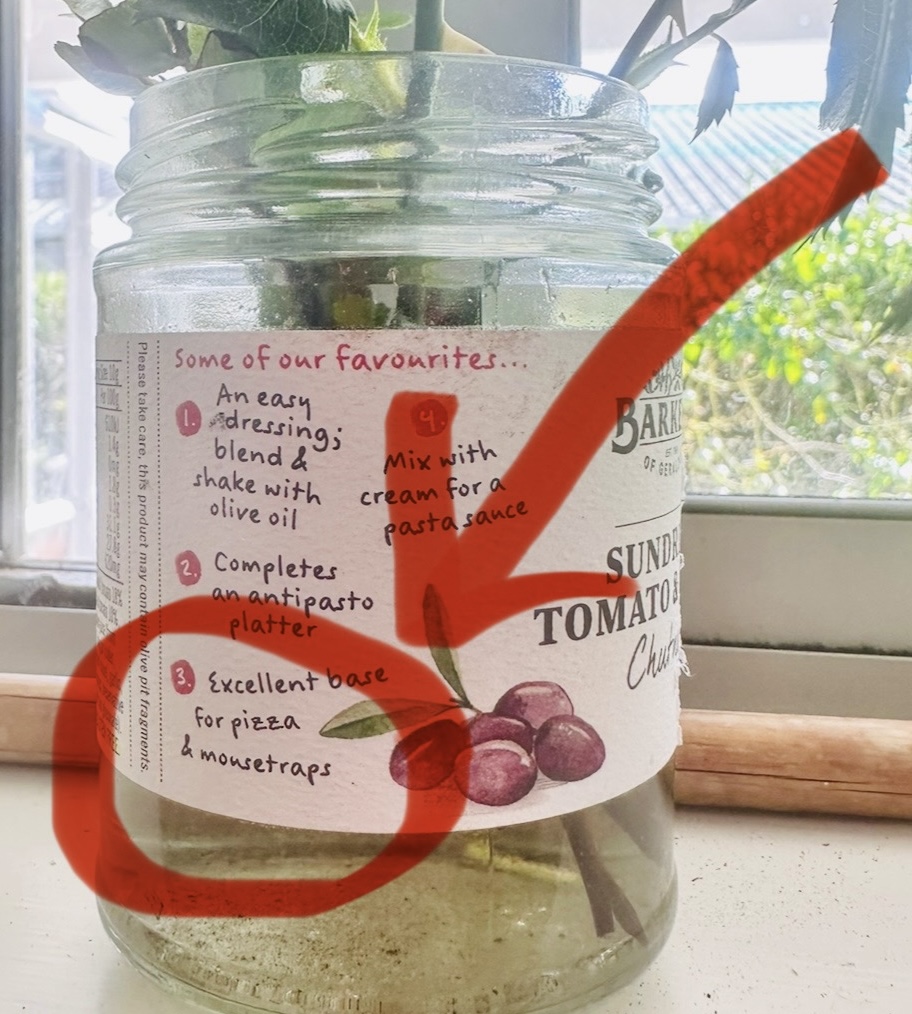When the boys are staying with us, they each choose a book for me to read them before bed. The other night, Kevin (reminder: that’s his Minion name, not his actual name) came running in with this book, telling me to get ready because it was so funny:
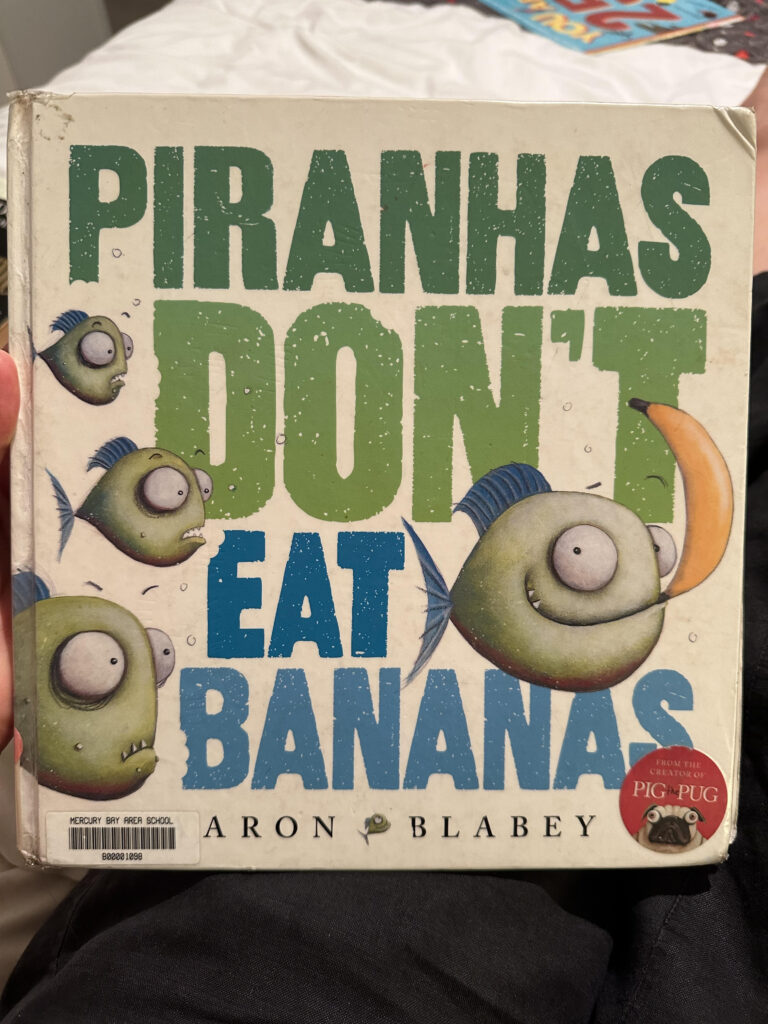
We settled in to bed and I began to read. The book starts off with a piranha named Brian offering his friend a banana.
“Hey there, guys, would you like a banana?” he asks.
“What’s wrong with you, Brian?” says his friend. “You’re a piranha.”
Kevin and I halfheartedly chuckled. I turned the page and kept reading. The story, and the illustrations, were very funny, but we weren’t really laughing. Something was off, but I couldn’t quite put my finger on it.
Brian the vegetarian piranha tried again:
“Well how about some silverbeet?”
“Are you serious, Brian? We eat FEET.”
And then it hit me: beet/feet. OH, the book is supposed to rhyme. But with my American accent the joke fell flat, because I pronounce it “buh-nan-nah” ( [bəˈnɛ̃ə̃.nə], for your phonetics geeks) and Kiwis, like the Brits, say “bih-na-na,” ([bəˈnɑː.nɐ]). Although the pretty Kiwi pronunciation of “banana” doesn’t exactly/perfectly/technically rhyme with “piranha,” it’s a hell of a lot closer to rhyming than my aggressive American “BUH-NAN-NAH.” 🍌👎
I shared my revelation with Kevin, who said “OOOOooh,” as in Oh, so that’s why the story isn’t funny when you read it! I cleared my throat and proceeded to try and pronounce “banana” with a Kiwi accent so that the rhyme worked. That experiment went so well that Kevin immediately took the book out of my hands and said “NOOOOO, stop! I’ll read it.”
And he did it perfectly, and the true humor/humour of the book came through. Bih-na-na/pih-ran-ha: a sublime bedtime rhyme paradigm.




